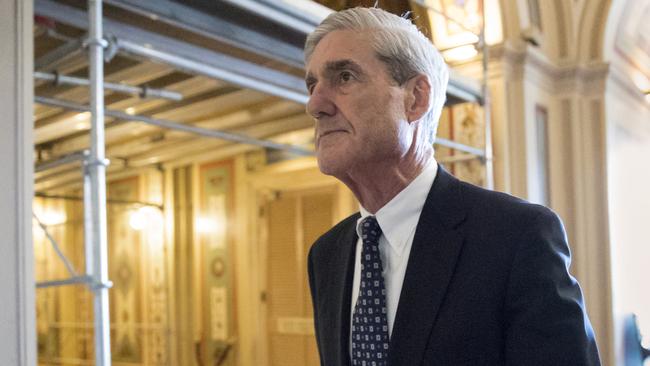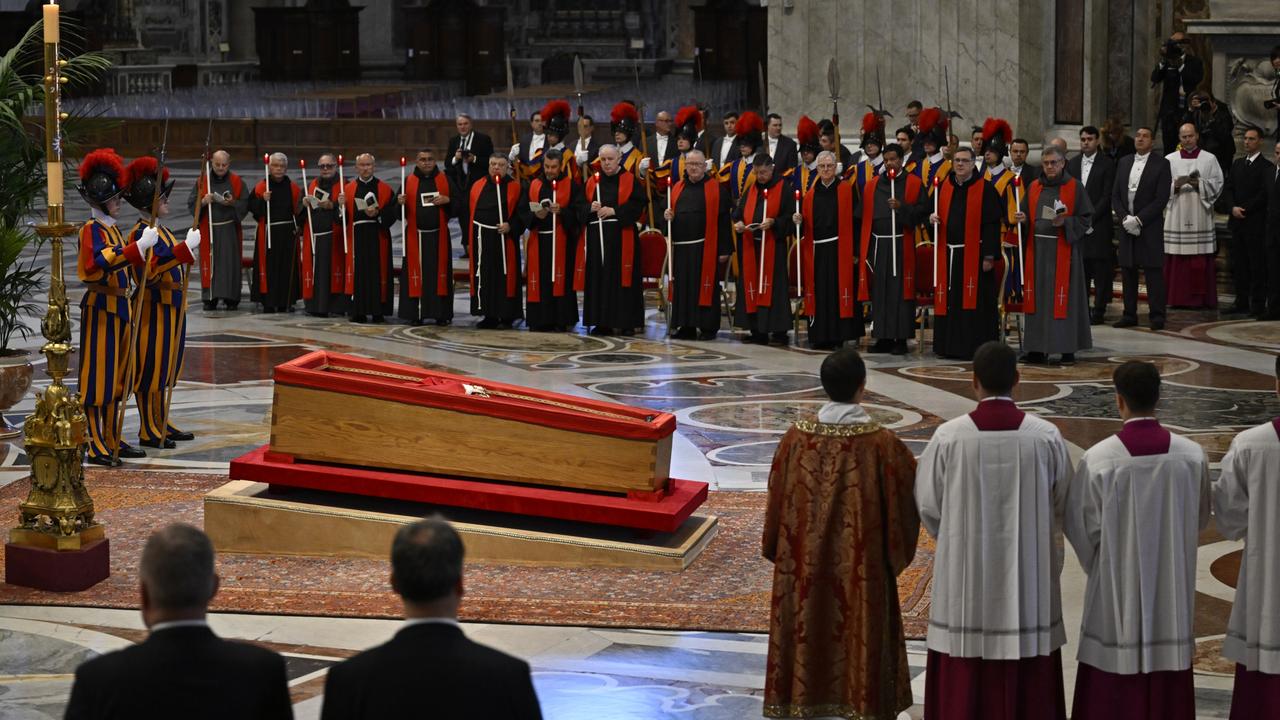To subpoena or not, that is Mueller’s question
Robert Mueller’s investigation has reached the point where he must now decide whether he will subpoena Donald Trump.

Robert Mueller’s Russia investigation has reached a tipping point where the special prosecutor must now decide whether he will issue a subpoena to force an interview with US President Donald Trump.
Trump’s lawyer Rudy Giuliani predicted yesterday that Mueller would not subpoena Trump because it would spark a protracted battle over the legality of such a move — a battle he claimed Mueller was likely to lose.
“I think that he would not win a legal battle if he did that, and I think it would consume months,” Giuliani said.
What’s more, Giuliani confirmed that the President had decided not to voluntarily co-operate in any interview request, a change from his position several months ago.
This leaves Mueller with the most difficult decision of his whole investigation. Trump’s lawyers provided written answers this week to a long list of questions from Mueller exploring if there was any collusion between the Trump campaign team in 2016 and Russia, in particular over the leak of hacked Democrat emails.
Now that Mueller has received these answers, the only obvious outstanding issue in his investigation is the question of whether Trump has obstructed justice.
This includes Trump’s alleged attempts to persuade former FBI chief James Comey not to investigate former national security adviser Michael Flynn, as well as Trump’s subsequent decision to sack Comey at a time when he was presiding over the Russia inquiry.
The special counsel did not include these obstruction-of-justice issues in his written questions to the White House because he wanted to interview the President about them in person. But Trump has cooled on the idea of a face-to-face with Mueller after his lawyers warned it would be a “perjury trap” for him, especially given Trump’s loose manner of speaking.
Since then Trump has ramped up his public attacks on Mueller, this week calling him and his team “a disgrace to our nation” who “don’t care how many lives they ruin”.
“Universities will one day study what highly conflicted Bob Mueller and his gang of Democrat thugs have done to destroy people,” Trump tweeted.
If Mueller does choose to subpoena Trump and the President opposes it, the issue could quickly escalate to the Supreme Court, where the newly conservative five-four majority may rule in his favour.
Only three presidents have ever been subpoenaed — Thomas Jefferson, Richard Nixon and Bill Clinton — but none has ultimately tried to fight the subpoena in court.
So a court has never had to determine whether a president can refuse to comply with a subpoena in a criminal case investigating his own conduct.
Any move to subpoena the President would also risk a clash between Mueller and his current boss, Acting Attorney-General Mark Whitaker, who has previously been a public critic of the Mueller probe.
But it is also possible that Mueller does not need to subpoena Trump in order to obtain responses to accusations of obstruction of justice.
Trump has sent full and detailed tweets on all of these matters which provide direct evidence of his thinking.
The Mueller investigation has now gone on for 18 months and with the US mid-term elections over there is pressure on Mueller to produce his long-awaited report.
He must now decide whether it is necessary to confront a hostile President with a historic subpoena, thus taking America down a path it has never walked before.




To join the conversation, please log in. Don't have an account? Register
Join the conversation, you are commenting as Logout